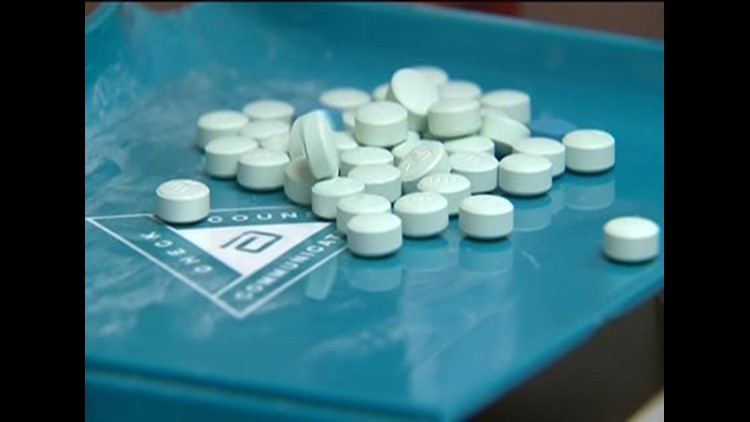When people hear about DUI or driving under the influence, the first thing that comes to mind is alcohol impairment. However, there are many drugs that can impair driving and result in a DUI or injury to yourself or others. Over 10 million American’s drove under the influence of alcohol and 20% of people in fatal accidents tested positive for alcohol or drugs.
Driving is an art and to drive defensively you need to be alert and be able to anticipate changing traffic speeds, high risk situations like children playing nearby, or changes in weather conditions. If you are on drugs that can make you drowsy or impair concentration, you are more at risk to miss these cues and to drive at unsafe speed or to react quickly enough when you need to slam on your brakes. Stimulants can make you less able to concentrate and be impetuous, impacting driving. Then there are the drugs that cause insomnia that indirectly cause tiredness, and the drugs that cause low blood pressure and dizziness which can impact reaction time.
Below is a table displaying the most common drugs and some alternative to think about. For drugs causing dizziness, the benzodiazepines Valium or Xanax; opioid drugs like oxycodone or hydromorphone; muscle relaxers like Soma of Flexeril; sleep aids like ambient or valerian; and the sedating antihistamines are the most common offenders. The sedating antihistamines all end in –amine and are in many cough and cold products, diphenhydramine is an example. For drugs that can induce insomnia like thyroid hormone, excessive caffeine, SSRI like Prozac or Paxil, corticosteroids like prednisone, and alpha- or beta-blockers are the biggest offenders.
There are many of these drugs including some antidepressants, antianxiety drugs, drugs to help you sleep, muscle relaxers, opioid drugs for pain like morphine, codeine, or oxycodone. Over the counter meds like the antihistamines ending –amine such as diphenhydramine, chlorpheniramine, brompheniramine, or doxylamine, and natural products like valerian root can all cause issues. Having said that, overdoing it with stimulants like caffeine such as drinking too many energy drinks or using caffeine pills can make you less likely to pay attention or make you impetuous and do things that are dangerous as well. And finally there are the drugs that reduce blood pressure which are great in many people but if your blood pressure gets too low, you can get dizzy or even pass out while driving.
First, don’t drive until you know how these drugs impact you, so take it for a day or two before driving. Second, if you are sleepy or dizzy, now is not the time to drive and if you are driving pull over and rest or call for help. Third, talk with your doctor or pharmacist about alternative drugs or alternative ways to take your drugs that can lessen the impact on your driving. And fourth, don’t combine alcohol with these drugs that can sedate you before driving or you run a greater risk of having an issue.
Dr Michael White from the UConn School of Pharmacy
Drugs that can impact your ability to drive with possible alternatives.
| Reasons for Driving Issues | Drug Classes | Problem Drugs | Possible Alternatives |
| Drowsiness/ Sleepiness | Benzodiazepines Drugs (ends in –pam) | Diazepam (Valium ®), Temazepam (Restoril®), Clonazepam (Klonopin®) Alprazolam (Xanax®), | Buspirone (Buspar®) |
| Sedating Antihistamines (in many cough and cold products, ends in –amine) | Diphenhydramine (Benedryl ®), Chorpheniramine, Brompheniramine, Doxylamine, Clemastine | Loratidine (Claritin®), Desloratidine (Clarinex®), Fexofenadine (Allegra®), Cetirazine (Zyrtec®), | |
| Opioid Pain Medication | Morphine, oxcodone, hydrocodone, hydromorphone, codeine | Acetaminophin, aspirin, naproxen, ibuprophen | |
| Muscle Relaxers | Carisoprodol (Soma®), Cyclobenzaprine (Flexeril®), Metazalone (Skelaxin®). Methocambamol (Robaxin®) | Acetaminophin, aspirin, naproxen, ibuprophen | |
| Sleep Medication | Zolpidem (Ambien®), Valerian, Melatonin | Non-Drug Sleep Techniques, Treat Sleep Apnea, Reduce dose | |
| Select Antidepressants | Amitriptyline, Nortriptyline, Trazodone. Nefazodone | SSRI or SNRI Antidepressants | |
| Antiseizure Drugs | Many of Them | Speak with doctor of pharmacist about which ones can do this and possible alternatives | |
| Jittery, Impulsive | Body Revving Drugs | Levothyroxine (Synthroid®), excessive caffeine | Make sure you are aware of side effects like jitteriness and let doctor know |
| Ability to React Quickly | Antiobesity Drugs | Topiramate, Lorcaserin (Belviq®) | Diet, Exercise, Band or Gastric Bypass Surgery |
| Dizziness, Passing Out | Antihypertensive Drugs | Beta-Blockers (ends in –olol), Calcium Channel Blockers (ends in –ipine), ACE Inhibitors (end in –pril), ARBs (ends in -sartan) | Space the drugs away from each other (take one in morning and the other at night), adjust time you take them, alert doctor or pharmacist |
| Drugs Causing Insomnia | Alpha-Blockers | Doxazosin, Prazosin, Tamsulosin (ends in –osin) | |
| Beta-Blockers | Metoprolol, atenolol, carvedilol, propranolol (ends in –olol) | ||
| Corticosteroids | Prednisone, Prednisolone | Other Anti-Inflammation Drugs (Antileukotrienes, Biologic Agents, etc) | |
| SSRI Antidepressant | Fluoxetine (Prozac®), Sertraline (Zoloft, ®) Paroxetine (Paxil®) | SNRI Antidepressants | |
| Disoriented | Medical Marijuana | Medical Marijuana | Talk with your pharmacist in the dispensary about the best species and the best delivery form (vaporizer, food, smoked) for you |



